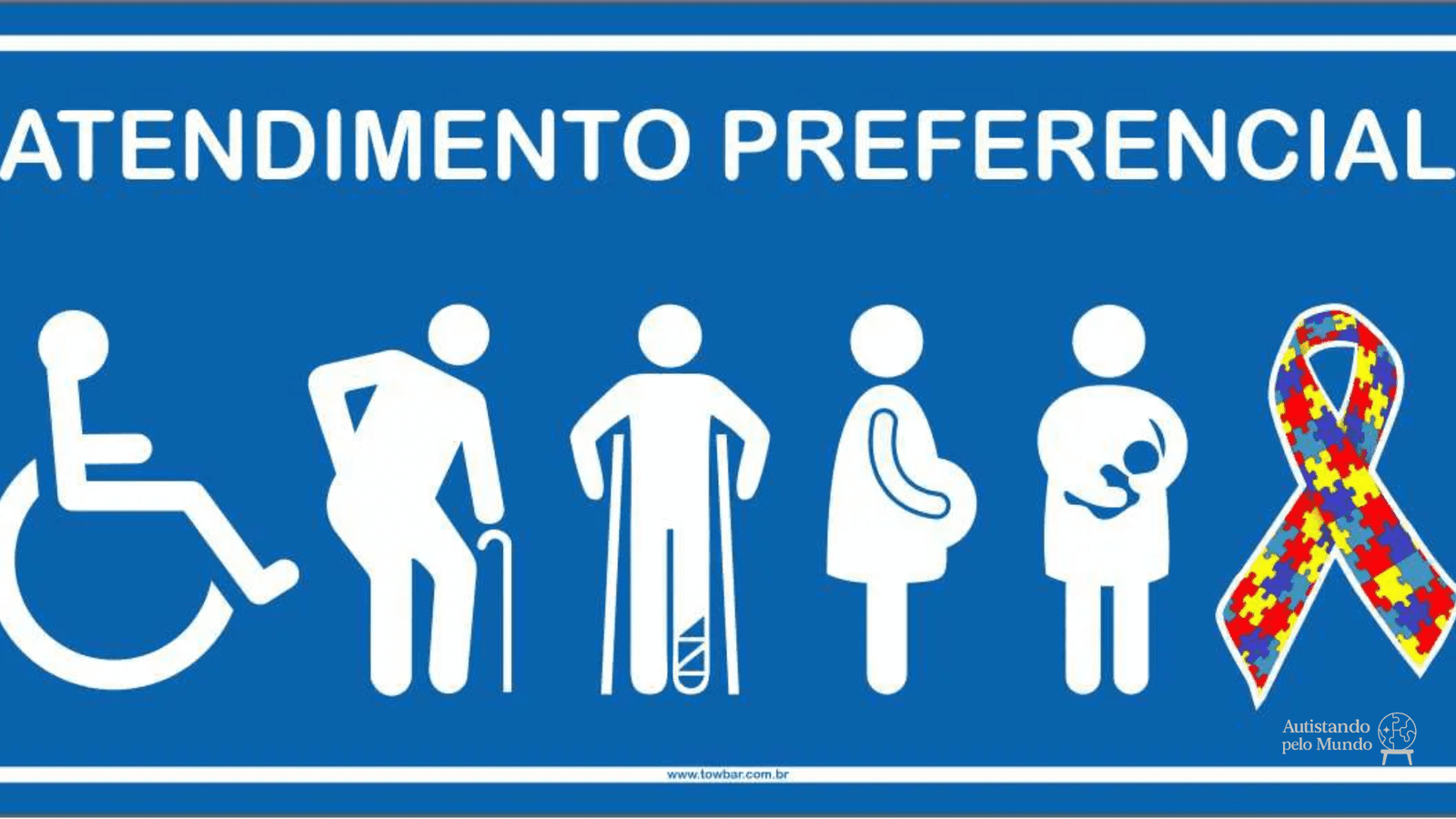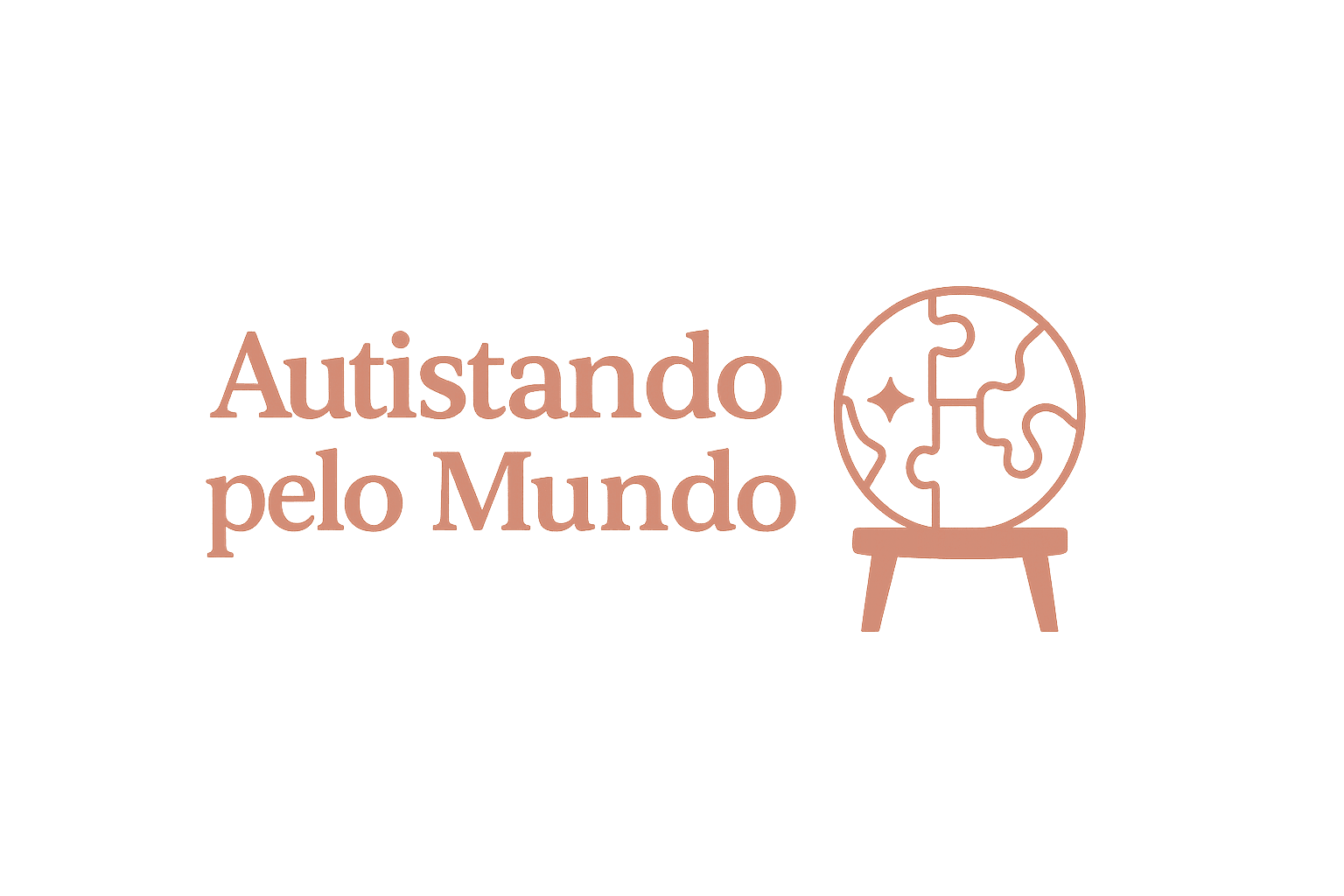Priority Queue for Autistic People in Brazil: Understand Your Rights and the Meaning of the Symbol
Preferential queue for autistic people in Brazil It's a right guaranteed by law, but still little known by many people. Understanding how this benefit works is essential to ensuring inclusion and respect in everyday routines. In this post, you'll clearly understand what the law says, the meaning of the symbol with the colorful puzzle ribbon, and how to demand this right respectfully and consciously.
🟦 Priority Queue with Autism Symbol (Puzzle Bow)
🕒 When did it start?
Priority service in Brazil has existed since Law No. 10,048/2000, which guarantees priority for the elderly, pregnant women, people with disabilities and other vulnerable groups.
However, it was only in 2012, with the Berenice Piana Law (Law No. 12,764/12), that the Autism Spectrum Disorder (ASD) became officially recognized as a disability, giving people with autism the right to preferential queues throughout the country.
Access the Berenice Piana LawMore recently, in June 2018, the State of São Paulo approved the Law 16.756/18, forcing the display of the symbol of autism (the famous colorful puzzle loop) on priority service signs in public and private places.
Finally, in July 2023, the Federal Law 14.626/23 was sanctioned. This legislation reinforces the right of autistic people to priority care throughout Brazil, standardizing the use of the symbol and raising awareness on the topic.
🧩 What is the meaning of the colored ribbon?
The colorful jigsaw puzzle-patterned bow is widely recognized internationally as a symbol of autism. It represents the diversity, complexity, and individuality of people on the spectrum. The use of this symbol gained traction especially in the 1990s and 2000s in awareness campaigns, although the jigsaw puzzle as a visual representation of autism has existed since 1963.
🔗 Official Reference: The puzzle piece symbol was created by National Autistic Society of the United Kingdom in 1963, as the first logo to represent autism.
In the context of preferential queues, the symbol has a clear function:
- ✅ Visually communicates that people with ASD have right to priority service;
- ✅ Avoids embarrassment and public questioning;
- ✅ Helps identify a guaranteed right, even when the condition is not visible.
✅ Why is it so important?
- ✔️ The autism is an often invisible disability, which makes it difficult for attendants and other people in the queue to spontaneously recognize you;
- ✔️ The symbol helps in inclusion, respect and dignity in the service;
- ✔️ Reinforces compliance with laws and contributes to social awareness.
Additionally, autistic children and adults may have greater difficulty with prolonged waiting times and noisy or crowded environments. Therefore, ensuring priority in these contexts directly improves quality of life.
📌 What can you do now?
- 🔹 If you or your family member is autistic, use the preferential queue with peace of mind. The law is on your side;
- 🔹 If the location does not have the symbol visible, you still have the right guaranteed. Explain politely or present your report, if you wish;
- 🔹 Share this informationSharing knowledge is a way to support the entire neurodivergent community.
You can even suggest that establishments in your city update their signage. This contributes to inclusion and avoids embarrassing situations.
🤝 Share your experience
Have you ever needed to use the preferential queue for autistic people in BrazilWhat was your experience like? On our website, we've created a space for real family stories. Your story could help others!

📸 Image credits: Illustrative image of a Preferential Service sign (via Mercado Livre).
📣 Share your inclusion experience!
Have you had a positive accessibility experience at a park, hotel, restaurant, or other location? Your story could help other families plan more inclusive trips.
Send your report and it may appear here on the website, in our section Reviews or General Tips!

Don't miss any tips!
Sign up and receive our inclusive tourism experiences directly to your email.
Want to make tourism more inclusive?
We are open to partnerships with accessible spaces, inclusive inns and projects that value diversity.
Get in touch and let's talk!